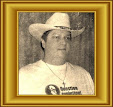In my neck of the woods — well, North America — it's autumn. (I reckon some folks call it fall because that's what leaves do.) This time of year has been used in many songs, often denoting sadness. Others are fond of this time of year, even planning to drive through areas on "color tours". You might want to consider taking route 209 which comes up here to Kingston, NY and runs down past Port Jervis into Pennsylvania. Kind of a difficult two-lane road, though. How about going off 209 into Ellenville, then onto Route 52 past Cragsmoor and into Pine Bush? You'll clip some of the Shawangunk Ridge State Forest, see some Catskill Mountains, and get lasso yourself some colored leaf viewing.
I kind of wandered a mite. So, what about those leaves? People like looking at them, but get irked when having to rake their yards and clean the gutters by their roofs. We agree that they're dead leaves. Or are they? Death came into the world because Adam sinned, but we read in Genesis that everything was originally vegetarian. That means plants were eaten. How did plants die before death entered the world? There's some specific Hebrew wording involved here, as plants are not "alive" in one specific sense.
 |
| Image credit: Pixabay / pixel2013 |
Fall in America and throughout much of the Northern Hemisphere is a beautiful time of year. Bright reds, oranges, and yellows rustle in the trees and then blanket the ground as warm weather gives way to winter cold. Many are awed at God’s handiwork as the leaves float to the ground like Heaven’s confetti. But fall may also make us wonder, “Did Adam and Eve ever see such brilliant colors in the Garden of Eden?” Realizing that these plants wither at the end of the growing season may also raise the question, “Did plants die before the Fall of mankind?”I won't leave you out on a limb. To finish reading, click on "Do Leaves Die?" Don't forget the last part about how leaves get their color, that's at the end.
Before we can answer this question, we must consider the definition of die. We commonly use the word die to describe when plants, animals, or humans no longer function biologically. However, this is not the definition of the word die or death in the Old Testament. The Hebrew word for die (or death), mût (or mavet), is used only in relation to the death of man or animals with the breath of life, not regarding plants. This usage indicates that plants are viewed differently from animals and humans.
